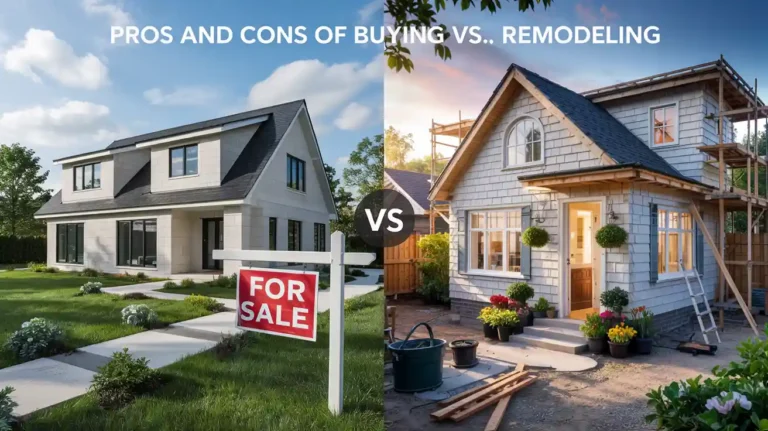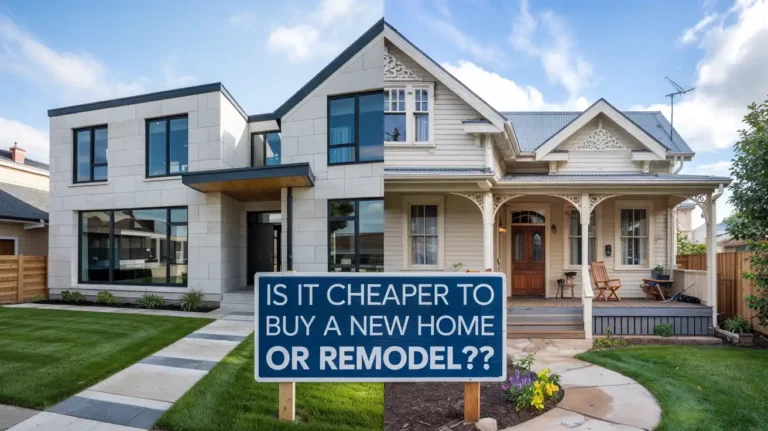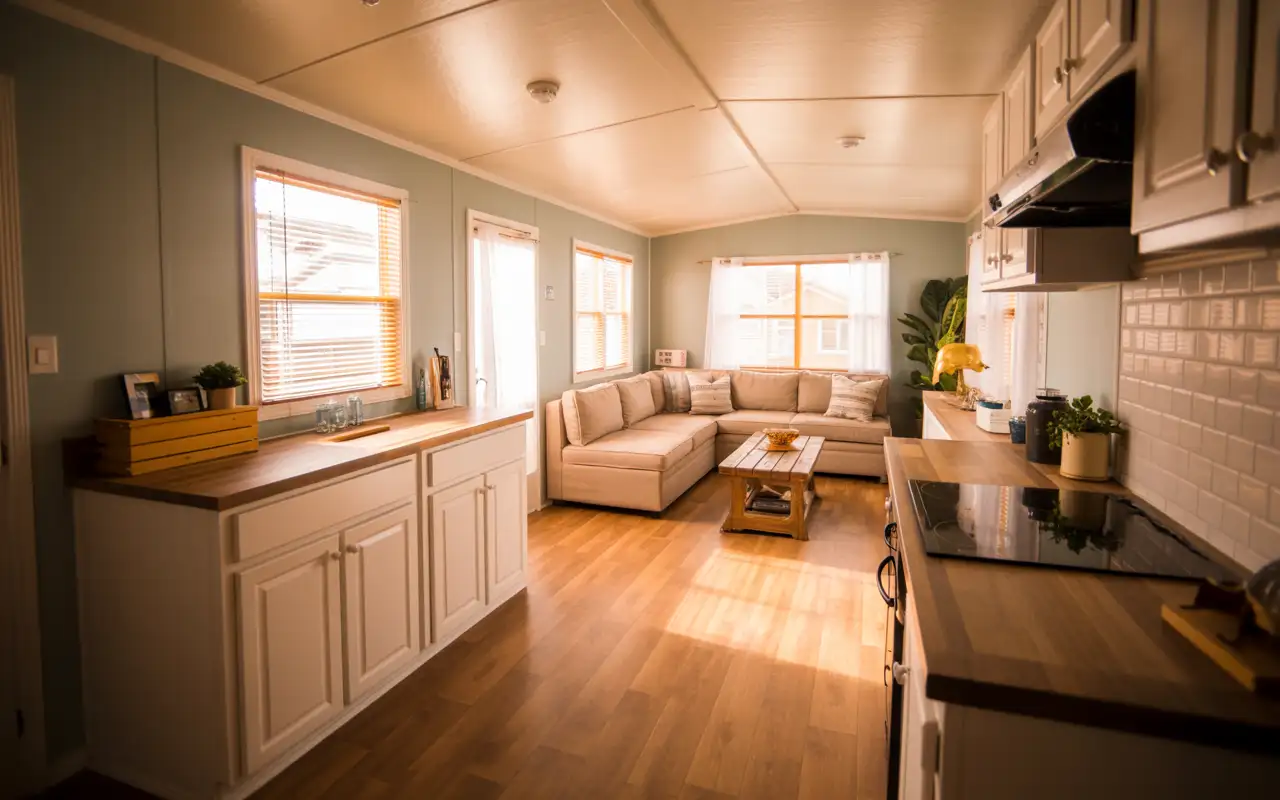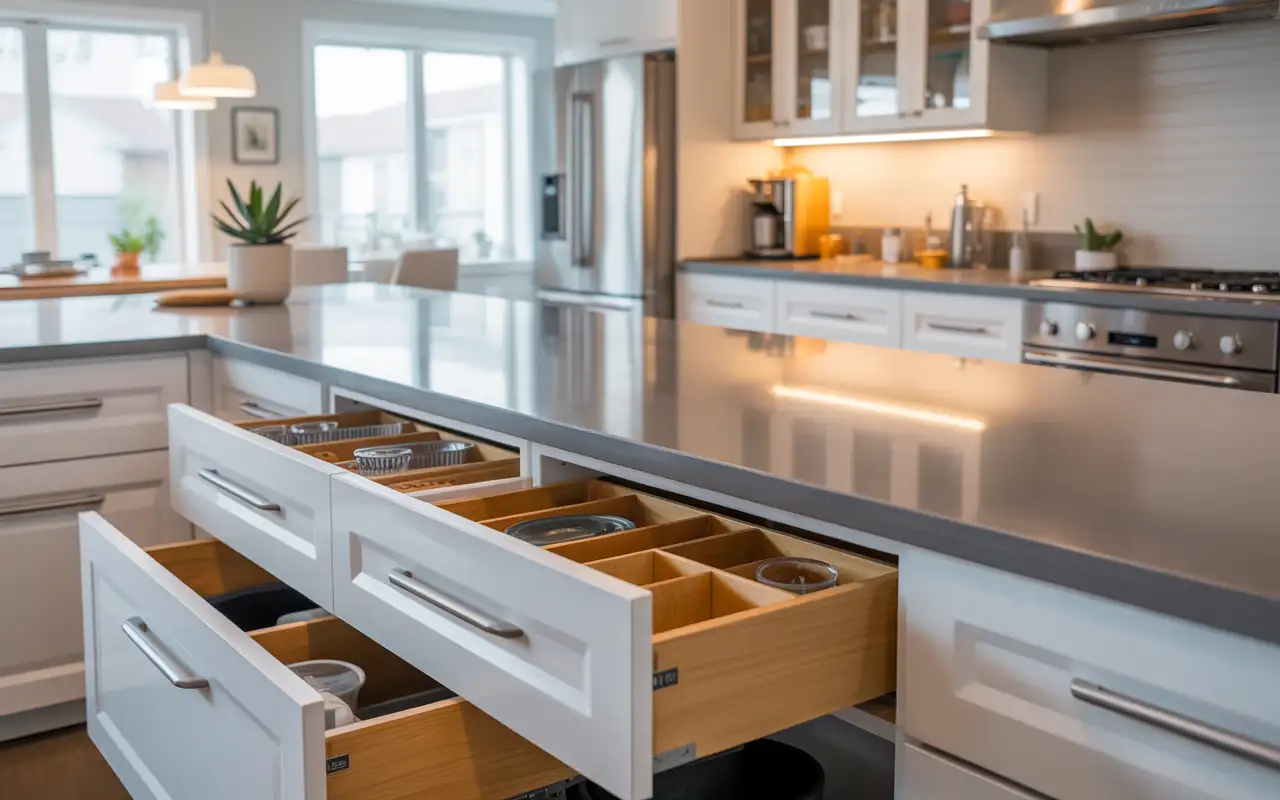The question of is it cheaper to buy a new home or remodel your current one comes down to a choice between predictable high costs and the risk of hidden expenses. The quick answer: renovating typically costs less if you need minor to moderate updates. But buying new becomes cheaper when your home needs extensive structural work or when renovation costs exceed 30% of your home’s value. The real decision depends on your specific situation, location, and long-term goals.
This guide breaks down the actual costs, hidden expenses, and factors that matter most to San Diego homeowners. You’ll get real numbers, local insights, and a clear framework to make the right choice for your family and budget.
Table of Contents
Is It Cheaper to Buy a New Home or Renovate?
The answer isn’t simple. Both options have merit depending on what you need.
A full home renovation in San Diego averages $100 to $200 per square foot. That means a 1,500 square foot home could cost $150,000 to $300,000 to fully renovate. New construction typically runs $250 to $400 per square foot in San Diego County, putting a comparable new home at $375,000 to $600,000 for the structure alone.
But these numbers tell only part of the story. Your current mortgage rate matters tremendously. If you locked in a rate below 4% before 2022, that’s a huge asset. Refinancing or buying new in 2025 means rates around 6.5% to 7.5%. On a $700,000 loan, that’s roughly $1,000 more per month compared to a 3.5% rate.
San Diego Market Reality Check
The median home price in San Diego sits around $850,000 as of early 2025. A fixer-upper in a desirable neighborhood like North Park or La Jolla might list for $650,000 to $750,000. Add $150,000 in renovations and you’re at $800,000 to $900,000 total investment.
A comparable move-in ready home in the same area? Expect $950,000 to $1.2 million. The renovation route saves $100,000 to $300,000 on paper. But you must factor in your time, stress, and living situation during construction.
The Hidden Cost Most People Miss
Temporary housing costs destroy budgets. If your whole house remodeling project takes six months and you pay $3,000 monthly for a rental, that’s $18,000 not included in contractor estimates. Many San Diego homeowners underestimate this expense.
California permits add another layer. A major remodel in San Diego requires plan checks, structural reviews, and inspections. Permit costs range from $5,000 to $15,000 depending on scope. Processing takes two to four months before work even starts.
When Numbers Favor Each Option
Renovating makes financial sense when:
- Your current interest rate is below 5%
- Needed updates cost less than 25% of home value
- You love your neighborhood and location
- The home’s structure and foundation are solid
- You can live elsewhere during major work
Buying new wins when:
- Renovation costs approach 40% of current home value
- Your home needs foundation, roof, and electrical updates
- You want a different neighborhood or school district
- Interest rates drop below your current mortgage
- You need space your lot can’t accommodate
Pros and Cons of Renovating a Home vs. Building a New One

Understanding both paths helps you avoid expensive mistakes.
Advantages of Home Renovation
You Keep Your Low Interest Rate
This might be your biggest advantage. A homeowner with a 3% mortgage saves roughly $12,000 per year compared to a 7% rate on the same loan amount. Over 10 years, that’s $120,000 in savings that can fund a significant home remodel company project.
Location Cannot Be Replicated
San Diego’s best neighborhoods like Del Mar, La Jolla, and Point Loma are mostly built out. A home to renovate in these areas costs less than new construction nearby. You get the same prestigious address at a lower entry price.
Established neighborhoods offer mature trees, walkable streets, and community feel. New developments in Otay Ranch or Eastlake lack this character for years.
Build Equity Through Improvements
Smart renovations return 60% to 80% of costs when you sell. A $50,000 kitchen remodeling project typically adds $35,000 to $45,000 in home value. You get to enjoy the upgrade while building wealth.
Energy-efficient upgrades cut utility bills permanently. New windows, insulation, and HVAC systems reduce monthly costs by $100 to $300 in San Diego’s climate. That’s $1,200 to $3,600 saved yearly.
Creative Control Over Design
An exterior home remodel lets you choose every detail. Want specific tile, custom cabinets, or unique lighting? You decide. New construction offers builder-grade options with limited customization.
Working with a home renovation builder who understands your vision creates a truly personal space. Production builders use standard layouts and finishes to maximize profit.
Disadvantages of Home Renovations
Unpredictable Expenses Wreck Budgets
Older San Diego homes hide problems. Opening walls reveals outdated wiring, hidden water damage, or termite issues. These surprises add $10,000 to $50,000 to budgets.
A house renovation site uncovers issues that inspections miss. Foundation cracks, roof damage, or plumbing failures appear mid-project. You cannot walk away once construction starts.
Life Gets Disrupted Badly
Living through construction is miserable. Dust covers everything. Noise starts at 7 AM. You lose access to kitchens and bathrooms for weeks.
Many families move out during major work. That means paying mortgage plus rent. If your project runs over schedule (most do), costs multiply fast.
Time Commitment Is Substantial
Home construction and remodeling takes longer than expected. A kitchen renovation quoted at eight weeks often takes 12. Whole house remodeling can stretch to 10 months or more.
You’ll spend hours choosing materials, meeting contractors, and solving problems. If you work full time, this becomes overwhelming.
Financing Costs More
A home equity line of credit typically charges 7% to 9% interest. On a $100,000 HELOC, monthly payments run $800 to $900. That’s added to your existing mortgage payment.
Cash-out refinancing means losing your low interest rate. Trading a 3.5% mortgage for 7% to access renovation funds often doesn’t make financial sense.
Advantages of Buying New
Everything Works Perfectly
New homes need zero repairs for years. The roof lasts 20 years. HVAC systems run 15 years. You avoid the $5,000 water heater replacement or $15,000 roof repair that old house vs new house buying decisions revolve around.
Builder warranties cover defects for one to two years. Major systems get 10-year warranties. This protection saves thousands compared to constant repairs on older homes.
Modern Energy Efficiency Cuts Bills
California Title 24 energy standards make new homes incredibly efficient. LED lighting, high-efficiency HVAC, and superior insulation slash utility costs.
San Diego homeowners in new construction pay $120 to $180 monthly for utilities. Comparable older homes cost $200 to $350 monthly. That’s $1,000 to $2,000 saved annually.
Predictable Costs and Timeline
When you buy new or work with home builders, the price is set. No surprise expenses appear mid-project. Your closing date is scheduled months in advance.
This predictability helps with planning. You sell your current home with confidence in your move-in date. The remodel vs new construction debate often hinges on this certainty.
Modern Layouts Match Today’s Lifestyle
Open floor plans, home offices, and large master suites come standard. Older homes need walls removed to achieve this. That adds $20,000 to $40,000 to renovation costs.
New construction includes smart home features, USB outlets, and proper internet wiring. Retrofitting these into old homes costs extra.
Disadvantages of Buying New
Higher Purchase Price Strains Budgets
New homes command a 15% to 25% premium over comparable existing homes. In San Diego, that’s $150,000 to $250,000 more for the same square footage and location.
This premium buys you peace of mind and modern systems. But it also means larger down payments and higher monthly payments.
Limited Inventory in Prime Areas
San Diego’s desirable coastal communities have little new construction. You’ll search in Chula Vista, Santee, or inland North County for new builds. That means longer commutes and less established amenities.
If location matters most, you’ll sacrifice newness for neighborhood quality. This trade-off drives many toward home remodelling services instead.
Cookie-Cutter Design Lacks Character
Production builders use five to seven floor plans across entire developments. Your home looks similar to 50 others on the same street.
Custom features cost extra. Want different countertops or upgraded flooring? Builders charge premium prices. The “customization” remains limited.
Landscaping Starts From Scratch
New homes sit on dirt lots. Creating a yard with grass, trees, and hardscaping costs $15,000 to $40,000. Established homes include mature landscaping worth tens of thousands.
Growing trees and gardens takes years. You’ll live with a bare lot while neighbors in older areas enjoy shade and privacy.
When a Home Renovation Is the Better Option
Renovating is the superior choice when you seek specific, targeted improvements that do not involve major structural changes or additions.
- You are in a prime location. You love your street, schools, and community. Location is the hardest thing to change.
- Your home’s structure is sound. An inspection confirms that the roof, foundation, and major systems are relatively new or in good condition.
- Your needs are mostly cosmetic. You want a new open floor plan, updated kitchens, or a remodeled bathroom. These home remodelling services are high-value and keep costs lower.
- You have a low-interest rate. Keeping your fixed-rate mortgage is more financially valuable than avoiding the renovation mess. This is often true for homeowners seeking a home to renovate instead of moving.
When a New Home Purchase Is the Better Option

Buying a new home becomes the clear winner when your desire is primarily for a significant lifestyle change, or when the costs of repairing an older home become too risky.
- You need significantly more space or a new layout. If you need a home addition permit for a second story, a dedicated office, or a first-floor master suite that your current home can’t support.
- The existing home has major deferred maintenance. If you are constantly spending on structural issues like a failing foundation, roof replacement, or new electrical work. This is when the cost to renovate a house or buy new swings toward buying new.
- You want zero risk and zero hassle. If you have a strict deadline or simply cannot tolerate living through dust and delays, the predictable timeline and low maintenance costs of new construction are priceless.
- You are making a lateral move to a better location. If you are moving from a less desirable home to renovate to a newer development with the modern amenities you want.
Making Your Decision: A Framework
Use this process to determine is it cheaper to buy a new home or remodel for your situation.
Step 1: Assess Your Current Home Honestly
Get a professional inspection. Understand what needs fixing now and within five years. Foundation, roof, electrical, plumbing, and HVAC condition matter most.
Calculate repair costs for essential items. Separate wants from needs. A new kitchen is wanted. A failing furnace is a need.
Step 2: Price Your Ideal Renovation
Get three estimates from licensed contractors. Expect costs to run 10% to 20% higher than quotes. Add 20% contingency for hidden problems.
Include all soft costs: permits, design fees, temporary housing, storage, and financing charges. The true cost of how much it is to renovate a house includes these expenses.
Step 3: Research New Home Options
Explore what’s available in your price range. Visit new developments. Compare sizes, locations, and finishes to your current home.
Calculate total costs including closing, landscaping, window treatments, and immediate furnishings. New homes need these extras that people forget to budget.
Step 4: Compare Monthly Payments
Create a spreadsheet. Include current mortgage, proposed HELOC payments, or new mortgage amounts. Factor in estimated utility costs for each scenario.
The cheapest option on paper isn’t always cheapest monthly. Cash flow matters more than total investment for most families.
Step 5: Consider Non-Financial Factors
How much do you value your current neighborhood? Can you find comparable schools elsewhere? What’s the commute difference?
Factor in stress tolerance. If construction makes you anxious, new construction might be worth the premium. If you enjoy projects, renovating could be rewarding.
Final Thoughts
Ultimately, the cheapest option depends entirely on the depth of change you require. For surface-level cosmetic upgrades, renovation saves you money on closing costs and commission. For a total, gut-to-the-studs overhaul, the high costs of unpredictable problems and temporary housing often erase any initial savings.
Before committing to a path, speak with both a Real Estate Agent and a qualified home remodel company to get precise cost estimates from contractors. Line-item every expense from the new mortgage to the HELOC payment to see which option truly costs less over a five-year period. Your smart, informed decision is the key to both home value and peace of mind.
If your decision is to proceed with a major overhaul, we are here to guide you. The San Diego Home Remodeling team provides professional home remodeling services in San Diego ca for every step of your project.
Contact San Diego Home Remodeling today to get a detailed, no-obligation estimate and start building your future.
FAQs
What adds the most value when renovating a home?
Kitchen and bathroom renovations deliver the highest returns. A minor kitchen remodel returns about 70% to 80% of costs. Bathroom updates return 60% to 70%. Other high-value projects include adding a second bathroom, finishing a basement, or creating an ADU for rental income.
How much does a full home renovation cost in San Diego?
Full home renovations in San Diego range from $150,000 to $350,000 depending on size and scope. A 1,500 square foot home typically costs $150,000 to $225,000. Larger homes or luxury finishes push costs higher. Always budget an extra 15% to 20% for unexpected issues.
Can I live in my house during a major renovation?
It depends on the project scope. Kitchen or bathroom remodels allow you to stay if you can tolerate limited access and dust. Whole house remodeling that affects multiple rooms simultaneously makes staying impractical. Most families move out for projects exceeding three months.
Is it better to renovate or build new for investment purposes?
Renovating usually offers better ROI if you buy below market value and improve strategically. Building new costs more upfront but requires less maintenance. In San Diego’s appreciating market, both can be profitable if you choose the right neighborhood and time your purchase well.
What’s the 30% rule for home renovations?
The 30% rule suggests keeping renovation costs under 30% of your home’s current value. Exceeding this threshold means you might struggle to recover costs when selling. If renovations would cost 35% to 40% of value, buying a different home often makes more financial sense.
How long do major home renovations take?
Kitchen renovations take six to 10 weeks. Bathroom remodels take four to six weeks. Full home renovations span four to eight months depending on permits, material availability, and project complexity. Always add 20% to contractor timelines for realistic expectations.







